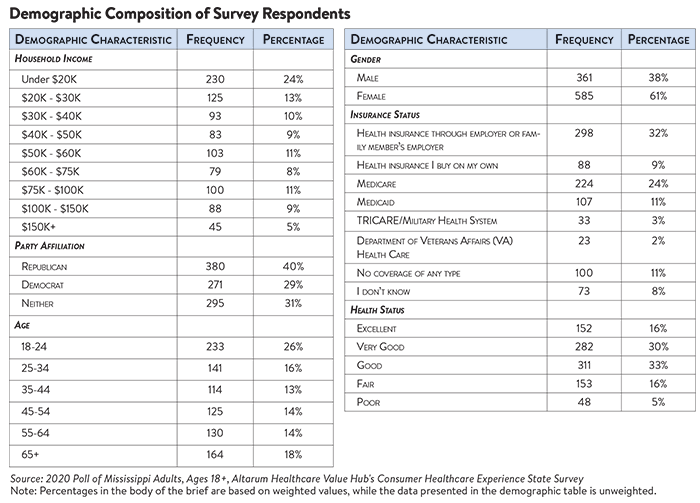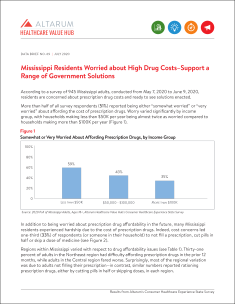Mississippi Residents Worried about High Drug Costs–Support a Range of Government Solutions
According to a survey of 945 Mississippi adults, conducted from May 7, 2020 to June 9, 2020, residents are concerned about prescription drug costs and ready to see solutions enacted.
More than half of all survey respondents (51%) reported being either “somewhat worried” or “very worried” about affording the cost of prescription drugs. Worry varied significantly by income group, with households making less than $50K per year being almost twice as worried compared to households making more than $100K per year (Figure 1).
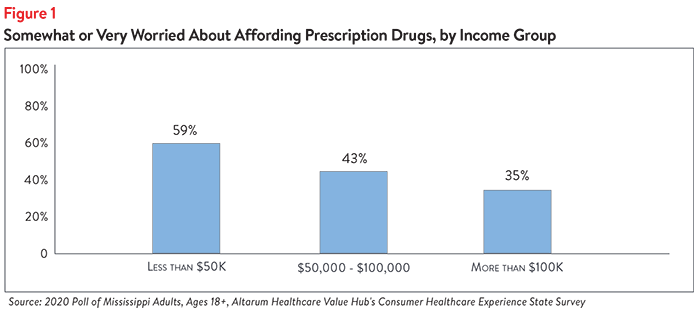
In addition to being worried about prescription drug affordability in the future, many Mississippi residents experienced hardship due to the cost of prescription drugs. Indeed, cost concerns led one-third (33%) of respondents (or someone in their household) to not fill a prescription, cut pills in half or skip a dose of medicine (see Figure 2).
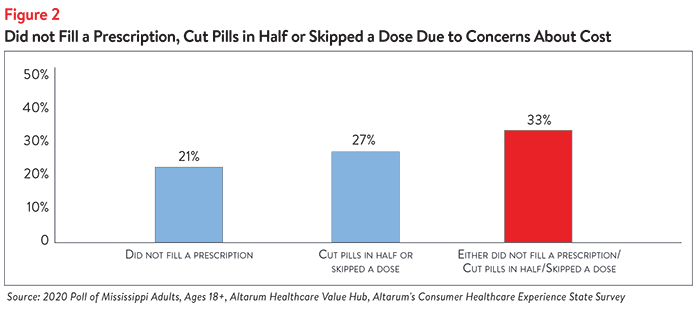
Regions within Mississippi varied with respect to drug affordability issues (see Table 1). Thirty-one percent of adults in the Northeast region had difficulty affording prescription drugs in the prior 12 months, while adults in the Central region fared worse. Surprisingly, most of the regional variation was due to adults not filling their prescription—in contrast, similar numbers reported rationing prescription drugs, either by cutting pills in half or skipping doses, in each region.
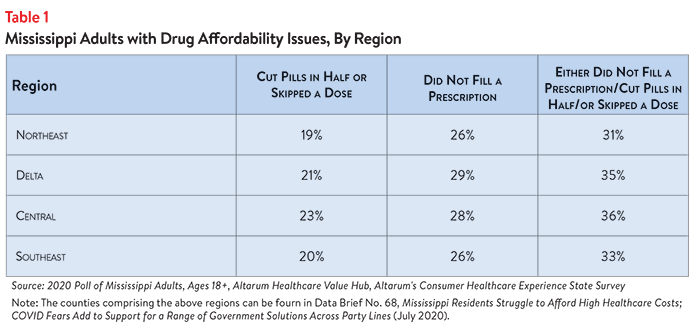
These hardships have a disproportionate impact on lower income households. As Figure 3 shows, households making less than $50K per year were twice as likely to ration their prescription medicines (by not filling a prescription, cutting pills in half or skipping a dose of medicine) as households making more than $100K per year. Moreover, these hardships are alarmingly prevalent in middle income households.
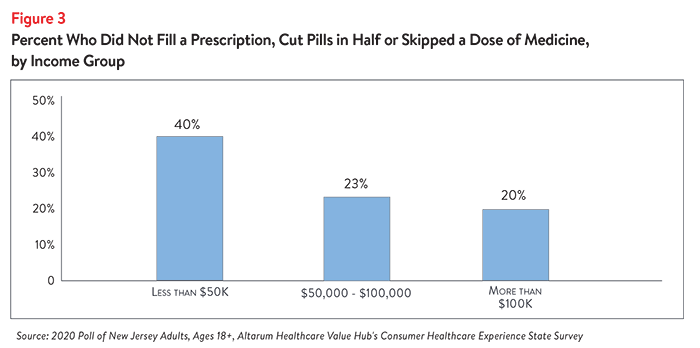
When given more than 20 options, the option cited most frequently as being a “major reason” for high healthcare costs was “drug companies charging too much money:”
- 68%—Drug companies charging too much money
- 61%—Hospitals charging too much money
- 59%—Insurance companies charging too much money
When it comes to tackling high drug costs specifically, respondents endorsed a number of strategies:
- 85%—Ensure the cost of widely needed vaccines are affordable for all
- 82%—Authorize the attorney general to take legal action to prevent price gouging or unfair prescription drug price hikes
- 82%—Require drug companies to provide advanced notice of price increases and information to justify those increases
- 81%—Prohibit drug companies from charging more in the U.S. than abroad
- 81%—Set standard prices for drugs to make them affordable
- 78%—Create a Prescription Drug Affordability Board to examine the evidence and establish acceptable costs for drugs
While Mississippi residents are united in calling for a role for the government in addressing high drug costs, they also see a role for themselves:
- 68%—would switch from a brand to a less expensive generic if given the option
- 62%—have tried to find out the cost of a drug beforehand
In light of these prescription drug cost concerns—as well as concern about high healthcare costs generally—it is not surprising that Mississippi adults are extremely dissatisfied with the health system:
- Overall, only 32% agreed or strongly agreed with the statement “We have a great healthcare system in the U.S.”
- While overall 62% agreed or strongly agreed that “The system needs to change.”
There is remarkably high support for government action on drug costs regardless of the respondents' political affiliation (see Table 2).
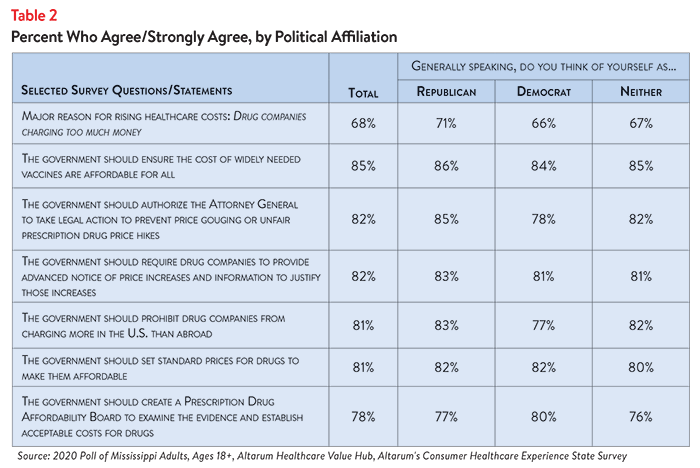
Methodology
Altarum’s Consumer Healthcare Experience State Survey (CHESS) is designed to elicit respondents’ unbiased views on a wide range of health system issues, including confidence using the health system, financial burden and views on fixes that might be needed.
The survey used a web panel from Dynata with a demographically balanced sample of approximately 1,000 respondents who live in Mississippi. The survey was conducted only in English and restricted to adults ages 18 and older. Respondents who finished the survey in less than half the median time were excluded from the final sample, leaing 945 cases for analysis. After the exclusions, the demographic composition of respondents was as follows.
